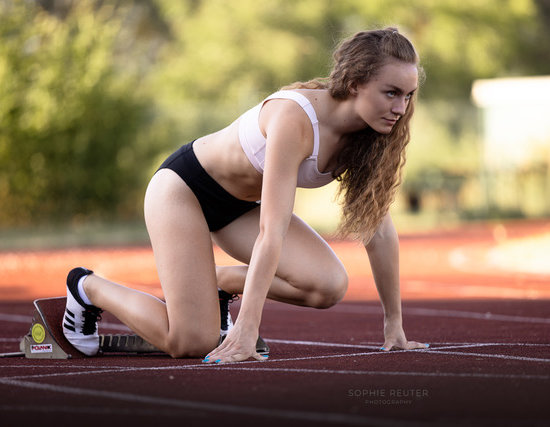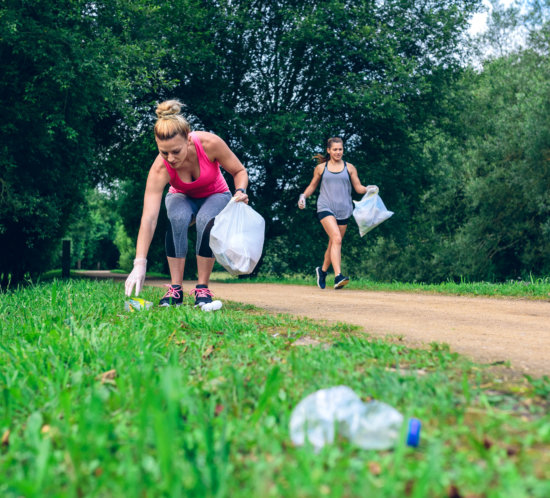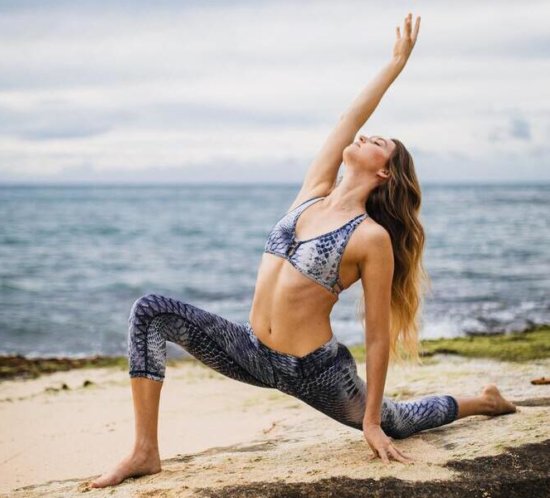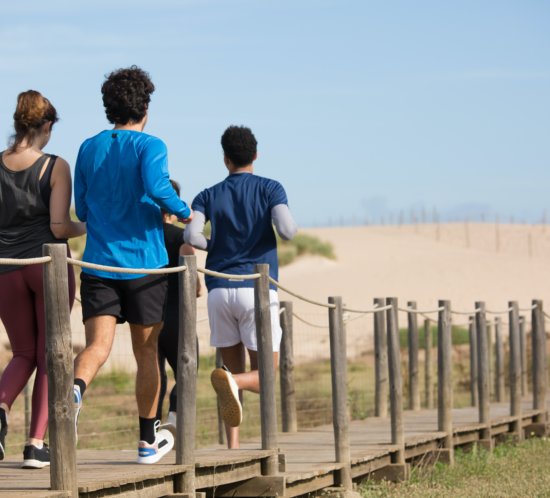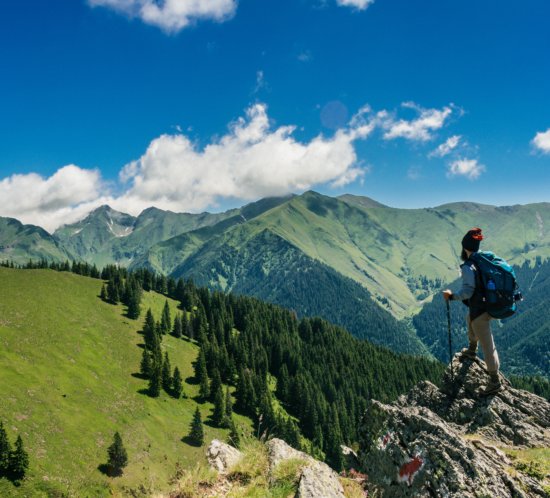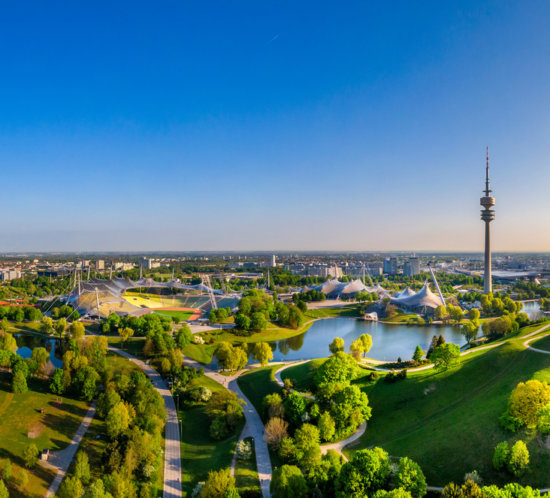Germany’s fastest 14-year-old – Emilia in an exclusive interview with InspiredBySports


After initial criticism, the German track and field athletes were able to prove their strength at the European Championships. But also the youngsters are already in the starting blocks and are training hard. We talked exclusively to the young sprinter Emilia.
Despite her supposedly young age of 14, Emilia knows exactly where she wants to go to: to the Olympic Games. Although it will still take some time until then, Emilia is already showing remarkable performances. Just this year, she ran 12.34 sec in the 100m at the Bavarian Championships, making her the fastest 14-year-old in Germany. In an exclusive interview, we talked to her about school, training and her big dreams.
IBS: Hello Emilia, glad it worked out with our interview. Congratulations on your huge success at the German Championships. You are now the fastest 14 year old in Germany with 12.34 sec over 100m. How does that feel?
Emilia: It doesn’t feel real. It was my wish for this season, but I didn’t know if it would come true because I had intense problems with my periosteum for a very long time and then an inflammation in the sole of my foot. To have achieved this goal in the end – in the last competition – I am super happy and of course very satisfied.
IBS: Can we assume that was your favorite competition this year?
Emilia: Definitely. I have seen a huge development that I have worked on together with my coaches – 7 tenths improved in 100m in 11 months.
IBS: In your training, do you focus more on long-term goals or on the upcoming competitions? To what extent do you adapt your training to that?

Emilia: At the moment, certainly more short-term. You do plan over several months, such as muscle building, endurance, etc. – but specific training units are always focused on the next competition. Only my trainer knows what that will look like in the future. So far, she plans everything for me and informs me weekly about my training sessions.

IBS: How often do you train a week?
Emilia: 3 times a week in the morning before school and 2-3 times a week in the evening after school.
IBS: Wow, right before school in the morning. How do you manage to balance school and training?
Emilia: I go to an elite sports school, which makes things a lot easier for me. The school hours alone are tailored to us athletes, which already makes a lot of difference and thus also allows us to attend training sessions before and after school. However, the material remains the same for us as for any other student. We just have to see how we can integrate learning into our daily routine. Some teachers are great about this, while others can be a bit annoyed when we miss classes due to competitions or training camps. All sides have to stick together here and be flexible.
In the end, however, the online offering is also very important, because without being able to access the school material at any time while on the road, it wouldn’t even be possible. The elite school is already trying very hard to support us as much as possible.
IBS: What does a normal day look like for you, including training?
Emilia:
6.30h get up, eat breakfast, get ready
7.00h Departure for training
7.45h to 9.30h training at the Olympic area (Werner-von-Linde-Halle) – afterwards with shuttle bus to school
10.00h Start of school
16.30h End of the school day and back to the Olympiagelände
17.00h / 17.30h start of evening training
19.30h Drive home to Dachau
20.00h eat Dinner / shower / study
22.00h Go to bed
IBS: You have quite a workload to fulfill on training days. Do you generally have time for other activities in your free time?
Emilia: That’s definitely the case. I always have school until half past four, but I still have time to do what I enjoy. If I don’t have any competitions on the weekend, I like to meet up with friends or spend time at my cousin’s horse ranch. I love to ride, but I also help out in the barn when possible.

IBS: Now we’ve already talked so much about your athletic performance. But how did you actually get into sports? Are you a very athletic family?
Emilia: Not directly, I did gymnastics in Dachau for a few years. In some competitions there were running, throwing and long jump as additional disciplines. It was clear that running and jumping are more my strengths than classical gymnastics. That’s why I finally switched to track and field in 2018.
To some extent, this also closes the circle. My grandmother was a multiple Tyrolean champion and bronze medalist in the 80m hurdles at the Austrian Championships in the 1960s. She claims, of course, that I got my talent from her. But my mother was also a good sprinter and as a 10-12 year old Tyrolean champion in the short sprint. And my parents ran some marathons together all over the world – as you can see, somehow everyone in my family runs.
IBS: Then you really come from a very sporty family. I assume you followed the European Championships in Munich as well. To what extent do you think the sporting event was an ideal advertising stage for track and field?
Emilia: If you’ve experienced the atmosphere in the stadium up close, you can only have become a fan of athletics. It was insane – that enthusiasm. I can well imagine that it was also transmitted to people who had no previous contact with athletics. There is no better advertisement for a sport. But even many of my friends who “only” saw it on TV were totally carried away.
IBS: So it must be a dream of yours to be able to compete in such a major event one day?
Emilia: Of course, my goal is to compete for Team Germany at the European Championships or even the Olympic Games. But until then, I’m focusing on my upcoming competitions. For example, next year I will be allowed to go to the German U16 Championships for the first time. I was still too young for that this year.
IBS: Emilia, thank you very much for the great interview and the insight into your everyday life. We wish you all the best for your upcoming competitions.
Statement
“In sprinting, everything happens in a few seconds. That’s where focus and mental strength are most important in my opinion. In other disciplines, there are three attempts to show your best. In sprinting, on the other hand, nothing is forgiven. One false start and you’re out!”
Soruce Image picture: Sophie Reuter Photography
YOU MIGHT ALSO LIKE THIS




